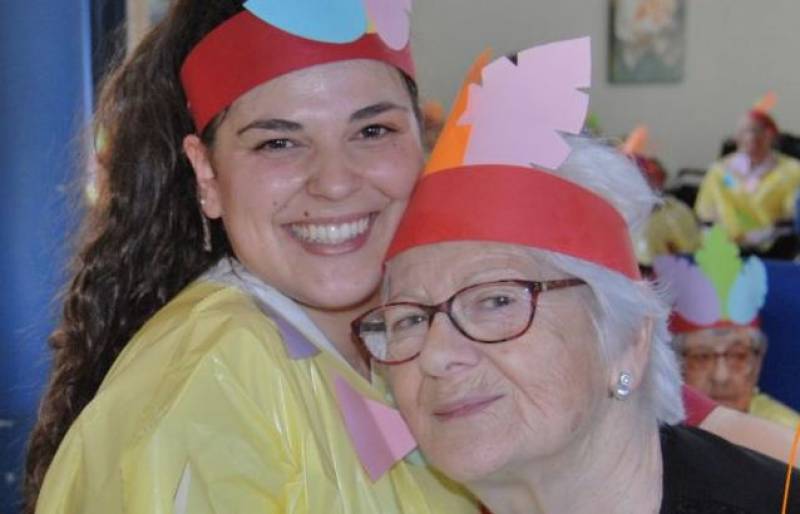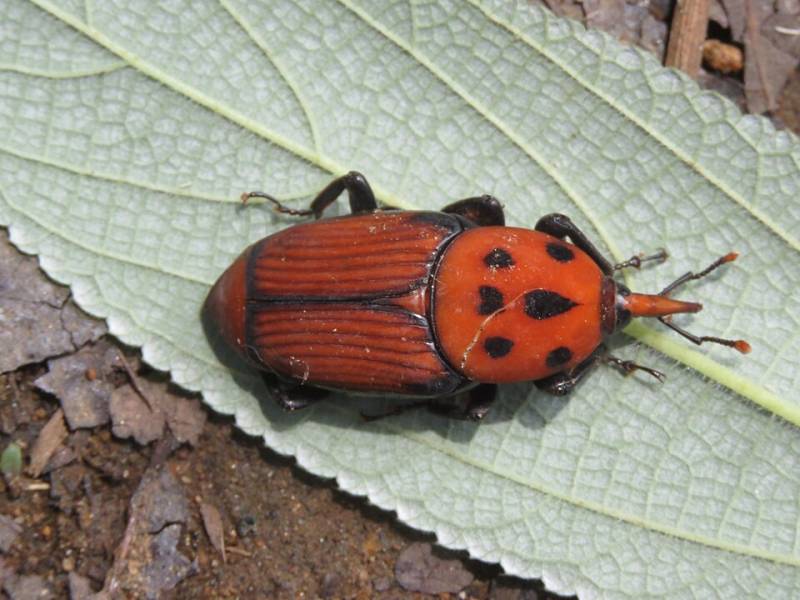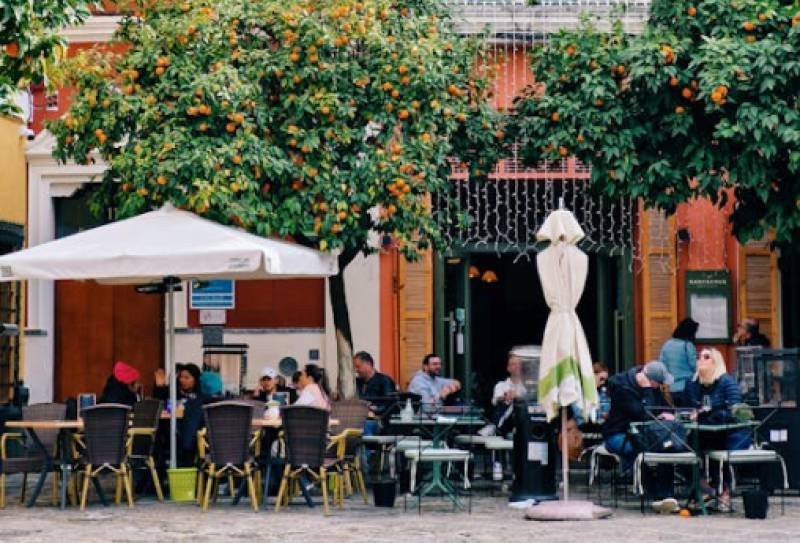- Region
- Águilas
- Alhama de Murcia
- Jumilla
- Lorca
- Los Alcázares
- Mazarrón
- San Javier
-
ALL AREAS & TOWNS
- AREAS
- SOUTH WEST
- MAR MENOR
- MURCIA CITY & CENTRAL
- NORTH & NORTH WEST
- TOWNS
- Abanilla
- Abarán
- Aguilas
- Alamillo
- Alcantarilla
- Aledo
- Alhama de Murcia
- Archena
- Balsicas
- Blanca
- Bolnuevo
- Bullas
- Cañadas del Romero
- Cabo de Palos
- Calasparra
- Camping Bolnuevo
- Campo De Ricote
- Camposol
- Canada De La Lena
- Caravaca de la Cruz
- Cartagena
- Cehegin
- Ceuti
- Cieza
- Condado de Alhama
- Corvera
- Costa Cálida
- Cuevas De Almanzora
- Cuevas de Reyllo
- El Carmoli
- El Mojon
- El Molino (Puerto Lumbreras)
- El Pareton / Cantareros
- El Raso
- El Valle Golf Resort
- Fortuna
- Fuente Alamo
- Hacienda del Alamo Golf Resort
- Hacienda Riquelme Golf Resort
- Isla Plana
- Islas Menores & Mar de Cristal
- Jumilla
- La Azohia
- La Charca
- La Manga Club
- La Manga del Mar Menor
- La Pinilla
- La Puebla
- La Torre
- La Torre Golf Resort
- La Unión
- Las Palas
- Las Ramblas
- Las Ramblas Golf
- Las Torres de Cotillas
- Leiva
- Librilla
- Lo Pagan
- Lo Santiago
- Lorca
- Lorquí
- Los Alcázares
- Los Balcones
- Los Belones
- Los Canovas
- Los Nietos
- Los Perez (Tallante)
- Los Urrutias
- Los Ventorrillos
- Mar De Cristal
- Mar Menor
- Mar Menor Golf Resort
- Mazarrón
- Mazarrón Country Club
- Molina de Segura
- Moratalla
- Mula
- Murcia City
- Murcia Property
- Pareton
- Peraleja Golf Resort
- Perin
- Pilar de la Horadada
- Pinar de Campoverde
- Pinoso
- Playa Honda
- Playa Honda / Playa Paraíso
- Pliego
- Portmán
- Pozo Estrecho
- Puerto de Mazarrón
- Puerto Lumbreras
- Puntas De Calnegre
- Region of Murcia
- Ricote
- Roda Golf Resort
- Roldan
- Roldan and Lo Ferro
- San Javier
- San Pedro del Pinatar
- Santiago de la Ribera
- Sierra Espuña
- Sucina
- Tallante
- Terrazas de la Torre Golf Resort
- Torre Pacheco
- Totana
- What's On Weekly Bulletin
- Yecla


- EDITIONS:
 Spanish News Today
Spanish News Today
 Alicante Today
Alicante Today
 Andalucia Today
Andalucia Today
Make these traditional Murcian dishes at home and celebrate All Saints Day in true Spanish style
November 1 is All Saints' Day or El Día de Todos los Santos and a national public holiday in Spain
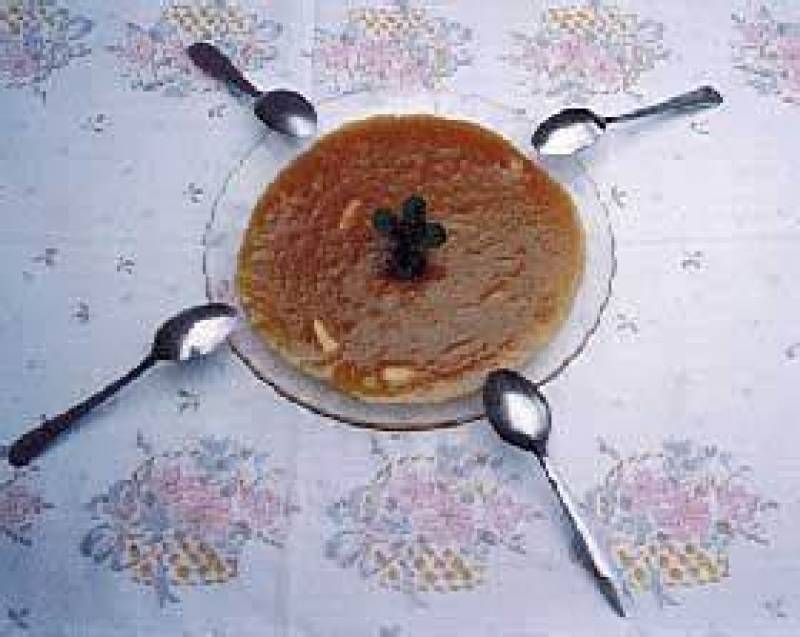
All Saints' Day is a hugely important date in the Spanish calendar steeped in history and celebrated from sunset on October 31 to sunset on November 1.
The festival recognises the transition from summer into the ‘darker’ winter and commemorates the dead and the souls of the departed, which are believed to return to their homes.
Families gather together and candles, flowers and culinary delicacies play a major role in the festivities. In the Region of Murcia, it's all about sweet cakes with typical dishes including buñuelos de viento, huesos de santo, arrope and calabazate customarily eaten on these particular days using autumnal foods like sweet potato, chestnut and pumpkins.
More Murcia traditions: All Saints' Day and All Souls' Day, 1st and 2nd November
Elsewhere in the country, Spaniards also enjoy enjoy panellets, sweet porridge, pestiños and fried doughnuts.
Here are 3 recipes for All Saints' Day dishes traditionally eaten in the Region of Murcia for you to try at home:
1. Buñuelos de viento (fritters)
 Ingredients
Ingredients
- Flour
- Warm water
- Yeast
- Salt
- Olive oil
- Sugar
How to make buñuelos de viento
First, mix a little warm water, salt and a handful of yeast in a bowl. Add the flour and knead. Cover the dough and let it rest for 15 to 20 minutes to let the yeast take effect and rise. It is important that the dough is soft rather than hard.
In a heated frying pan with plenty of oil, pour pieces of the dough making a hole in the middle.
Once the fritters are fried and browned, remove from the pan and drain on kitchen paper to remove excess oil. Finally, coat in sugar and serve.
2. Huesos de Santo
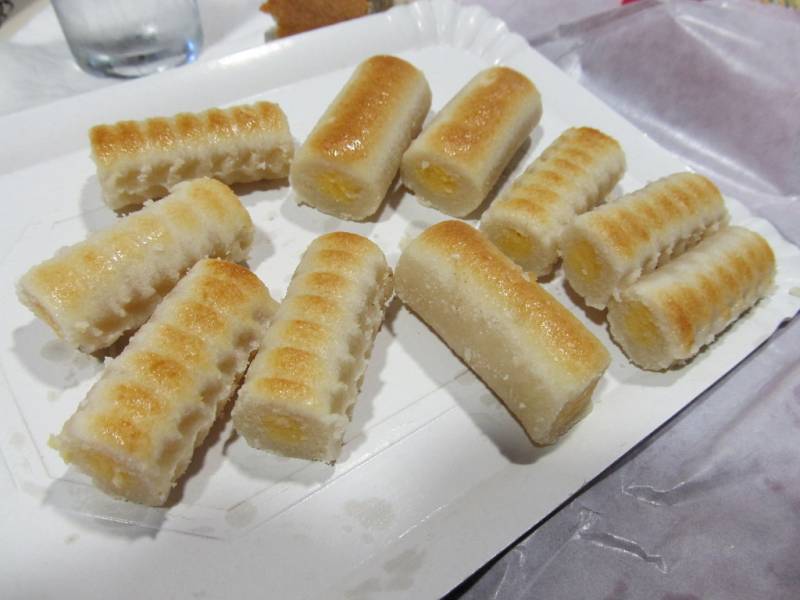 This is a dessert made with marzipan, white in color and elongated and cylindrical in shape, originally filled with sweet egg yolk.
This is a dessert made with marzipan, white in color and elongated and cylindrical in shape, originally filled with sweet egg yolk.
Ingredients for the marzipan
- 200g of ground almonds
- 200g of sugar
- 100g of water
Ingredients for the yolk
- Yolks of 4 large eggs
- 100g of sugar
- 50g of water
- 150g of powdered sugar
How to prepare the marzipan
Put the sugar and water in a saucepan over medium-high heat and bring to the boil for one minute before removing from the heat. Place the ground almonds in a bowl and add little by little the prepared syrup, while stirring it slowly. When you have a consistent dough, make make a ball and let it rest for about two hours.
Once cold, sprinkle powdered sugar on the table and roll out the marzipan with a rolling pin until it is 2 to 3 millimeters thick, then cut the dough into rectangles of about 5 centimeters wide by 6 centimeters high. Roll them on the stick of a wooden spoon and place them upright on a baking tray. Let them dry for about four hours.
How to prepare the yolk
For this process, place the yolks in a microwave-safe container and beat lightly. Make a syrup with the water and sugar in a saucepan, over medium-high heat. Once it comes to a boil, either leave for three minutes or once it reaches 105 degrees Celsius.
Remove the syrup from the heat and add it to the egg yolk, stirring constantly. Put the container in the microwave and cook the yolk at maximum power for 30 seconds, stopping and stirring, until it thickens. This should take around two ad a half minutes.
Once thick, let it cool at room temperature covered with cling film. Add directly to the yolk so that it does not form a crust and put it in the refrigerator for two hours.
3. Arrope and calabazate
 This is a cold dish of boiled figs to which is added the calabazote or calabazate, a mixture of quinces, melon and sweet potatoes treated with lime and broken into pieces. Its sweetness, a defining characteristic, comes from the figs, as there is no added sugar.
This is a cold dish of boiled figs to which is added the calabazote or calabazate, a mixture of quinces, melon and sweet potatoes treated with lime and broken into pieces. Its sweetness, a defining characteristic, comes from the figs, as there is no added sugar.
This artisan sweet involves a laborious process using a traditionally made jam made from figs, grape must, pumpkin and other fruits.
It is customary to find it in the market of 'Todos los Santos' in the Plaza de San Pedro in Murcia.
Ingredients
- 3kg of pumpkin
- 6 litres of water
- 1kg of Cal de bolo (it's sold in chemists)
- 750g of sugar
- 6kg of black dried figs
- 1 sweet potato
- 1/2 melon
- 1kg of pears
Preparation
To make the arrope, clean the figs, removing the stalks and cutting in half. Leave them to soak in water overnight before removing and preserving the water. Then boil the figs in clean water for three hours and add the water from earlier.
Once you have a black broth, use a cloth strainer to get rid of any seeds. Once strained, place the broth back in the saucepan over heat to reduce so that only the juice of the figs remains.
To make the calabazate, boil 9 litres of water, with the lime of bolus, until the water is transparent and the lime is rested in the bottom of the pan.
Carefully remove the water and add the other diced ingredients. Leave the mixture to soak for about five hours. Boil a pan of rice and add the fruit and potato, removing and serving once cool.
You may also enjoy: Halloween in Spain and why November 1 is a public holiday
Image 1: Wikimedia
Image 2: Flickr
Image 3: Wikipedia
staff.inc.ali
Sign up for the Spanish News Today Editors Roundup Weekly Bulletin and get an email with all the week’s news straight to your inbox
Special offer: Subscribe now for 25% off (36.95 euros for 48 Bulletins)
OR
you can sign up to our FREE weekly roundup!
Read some of our recent bulletins:
Discount Special Offer subscription:
36.95€ for 48 Editor’s Weekly News Roundup bulletins!
Please CLICK THE BUTTON to subscribe.
(List price 3 months 12 Bulletins)
Read more stories from around Spain:



















